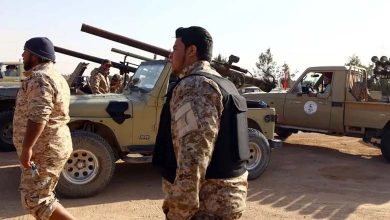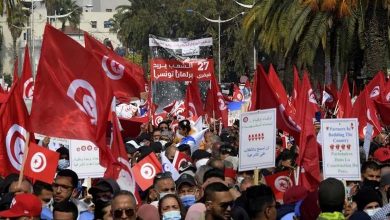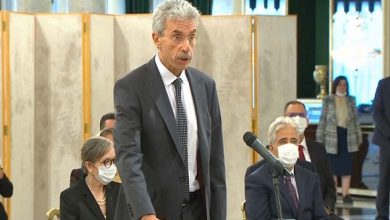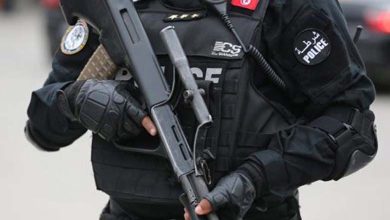Libya: Tripoli Faces the Risk of New Confrontations between Militias
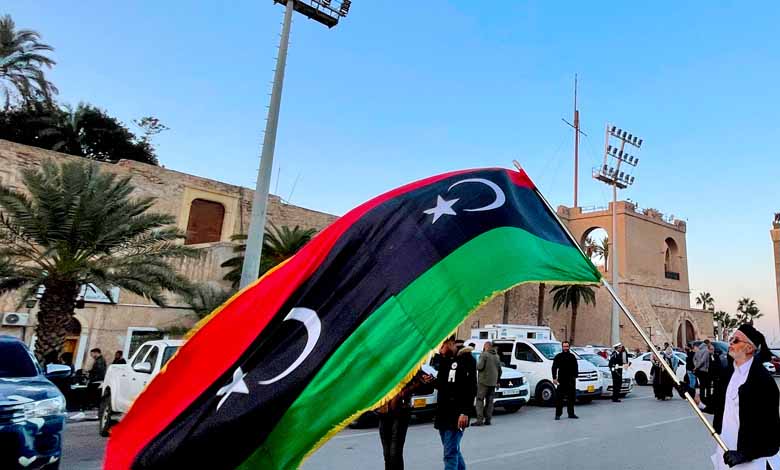
Libya’s capital, Tripoli, is at risk of a new conflict between militias, with reports of renewed friction between the deterrence militia and the Tripoli Revolutionaries militia of Ayoub Aburras, seeking to settle an “old account.”
Local media reported that the deterrence militia gave Abu Ras fighters an ultimatum to evacuate al-Saadawi camp near Ain Zara, south of the capital.
Civil sources said that Ain Zara witnessed a crowd of “Tripoli Revolutionaries” who had earlier seized vehicles belonging to Haitham al-Tajouri’s forces that retreated to the area from their positions in the heart of the capital after last Saturday’s clashes.
The deterrence militia seems to be seeking to increase its influence in the capital recently, after it managed at little cost to take control of areas from Souq al-Jomaa and the entire Andalus neighborhood and put an end to the presence of armed groups such as the Nusaywi without actively participating in Saturday’s clashes.
The two sides engaged in violent confrontations last July, beginning with mutual kidnappings, and ending in violent confrontations in the Faranaj area. As a result, the deterrence took control of four other militia centers, most notably the Sabaa Anti-Narcotics Headquarters, the Internal and External Security headquarters, the Anti-Illegal Migration headquarters, and the Tripoli Revolutionaries retreated to Ain Zara to the south.
Nobody stops them
In the face of these endless conflicts, Libyans cannot find anyone to stop what is happening in the capital, as Libyan military expert Mohammed al-Sadeq believes, stressing that the only solution is to end the chaos of weapons and establish a unified military institution in all parts of the country.
But the solution lies far away, and the people of Tripoli continue to suffer under “gangs and dueling militias”, al-Sadeq said, noting that Libyans have only suffered casualties from the bullets of these armed groups.
Protection of civilians
Ahmed Hamza, chairman of Libya’s National Human Rights Commission, called for sparing civilians from the tragedies of clashes. Recent acts of violence pose a serious threat to security and property.
The August 27th clashes in Tripoli left 32 people dead and 159 injured, in addition to damaging five health institutions, a mosque and a number of public and private properties.
Hostilities in densely populated civilian neighborhoods and areas can be classified as war crimes, which must be investigated because they contravene the Fourth Geneva Convention, Hamza said. The use of weapons inside cities, whether to destroy hostile sites or create a state of terror among the civilian population for military or political purposes, is a justification for including the perpetrators as war criminals and can be called for to be tried internationally, he said.
Security Council warning
In a statement issued Thursday, UN Security Council members condemned “the violent clashes in Tripoli” and called on all parties to “refrain from violence or any other actions that could escalate tensions and undermine the political process.”
The Council warned against the application of the sanctions contained in resolution 1970 of 2012 to those who caused the clashes, including prosecution by the International Criminal Court, noting the need to abide by the ceasefire agreement of 23 October 2020 in Libya and the withdrawal of all foreign forces and mercenaries from the country, without further delay.






